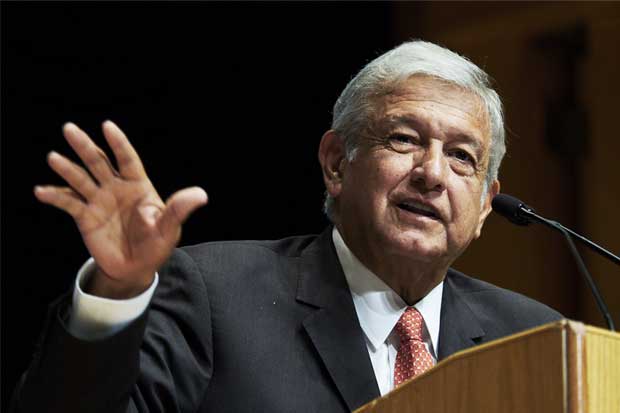Exceptional election in Mexico Right? Left? Old? New? Who knows?
Monday, March 5, 2018

Mexico's July 1 presidential elections appear to be the hottest of this century.
Outgoing president, Enrique Peña Nieto, is the least popular on record, violence has reached a new peak, and the future of Nafta – a linchpin of the economy since 1994 -- is in doubt, while many Mexicans are concerned about widespread corruption.
None of the three main presidential candidates has been elected by his respective party.
Leading in opinion polls is Andres Manuel López Obrador, 64, of the National Regeneration Movement - Morena.
This is Lopez’s third presidential campaign, and the first in which he is running for Morena, a party which he created.
López is referred to as a leftist, who would increase state power, but also as an old-school Mexican nationalist, who supports private enterprise, especially small entrepreneurs.
His election program does not mention re nationalizing the country’s oil-gas sector, which was opened to private investment by the Peña government, while López himself has a reputation for personal honesty.
Second in the polls is Ricardo Anaya, 38, the self-appointed candidate of the National Action Party (PAN), widely regarded as pro-business movement, which supports traditional family values.
At the same time, Anaya is running as part of an alliance with the center-left Party of the Democratic Revolution (PRD), on a social-welfare platform which includes proposals to double the minimum wage, and create a minimum guaranteed income for every citizen.
President Peña of the ruling Institutional Revolutionary Party (PRI), personally appointed the candidate José Antonio Meade, who says that he is running an independent, and not as a member of the PRI, which according to polls is in last place.
A technocrat and party veteran, Meade sometimes has difficulties communicating with ordinary Mexicans.
But the PRI, a machine honed by seven consecutive decades of power, continues to be the main political presence -- and informal employment exchange -- throughout Mexico.
But the PRI, a machine honed by seven consecutive decades of power, continues to be the main political presence -- and informal employment exchange -- throughout Mexi
